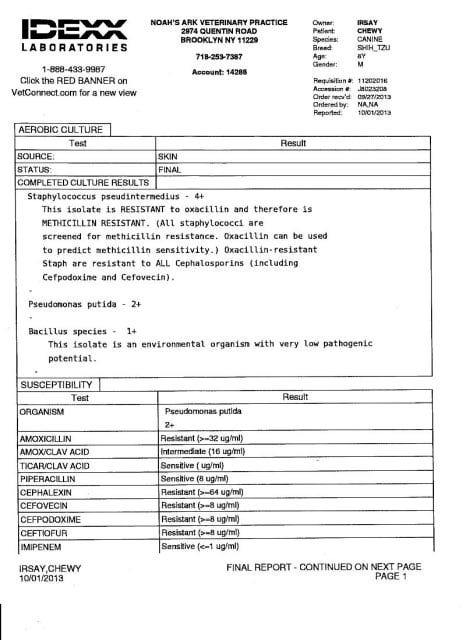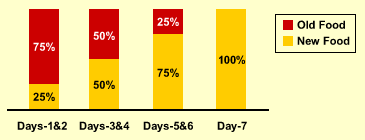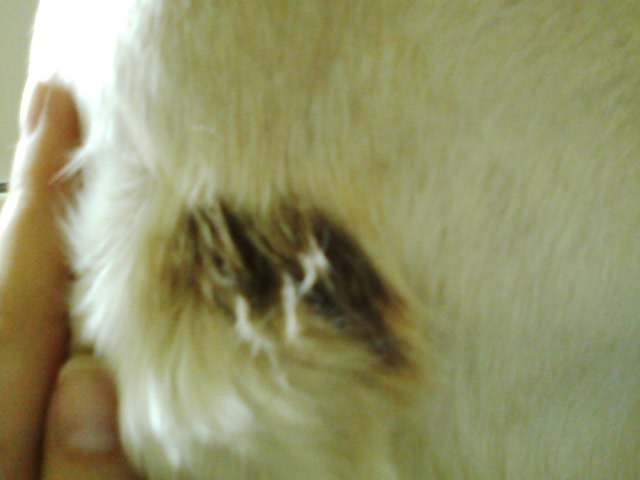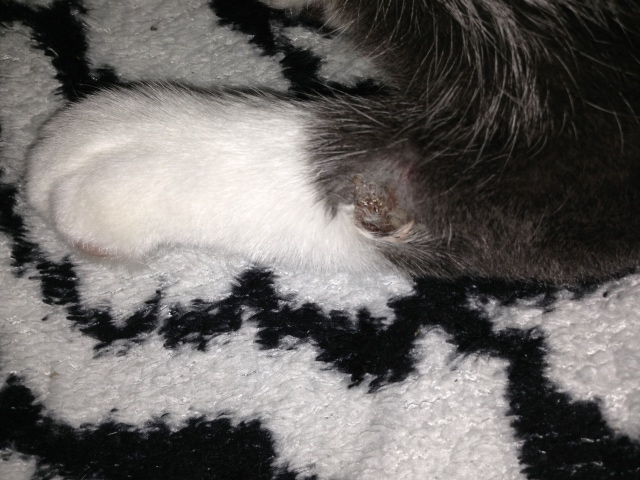QuestionI have a 7 year old lab/german shepard mix dog. She had separation anxiety as a puppy (very destructive) and now recently after 6 years of nothing she started again. I am afraid that she will hurt herself. I have put her in a crate now and she will dig until her nails of her front paws are bloody. Her best dog friend that she seen quite often recently was killed by a car and I don't know if she knows that or not. She is a wonderful dog very gentle, but is very upset lately. I didn't change how I treated her in this time span, so not a clue. She is very spoiled but I always thought that it didn't matter because she was good. I hate putting her in the crate because she hates it. She hides and I have to drag her into it in the morning to go to work, but can't leave her out. She pushed a screen out of the window and roamed around last week, and I'm afraid for her safety. She has hurt herself during these eposides. I do have an appointment with her vet in 10 days, but before they told me to ignore her to stop the separation anxiety and I've tried that and It doesn't seem to stop the problem. Any advise would be greatly appreciated.
Thanks
Sheri
AnswerSheri,
She will most likely need Clomicalm. In the meantime, I would recommend giving her RESCUE REMEDY and getting a few D.A.P. Diffusers in the house to help her. You could try giving her Valerian Root to see if that helps her. Continue with Behavior Modification (see below).
GOOD LUCK!
Dr. Fry
Before Leaving : Pay no attention to your dog for 10-30 minutes before going out.
Note: When you leave, make it low key, without elaborate good-byes. Just walk out the door.
Leave a special toy or a treat to distract the dog when you go out and remove the item upon your return.
Note: Make this something special, like a food-filled treat, so that your leaving is associated with something positive. The treat should also occupy your dog during those critical first moments after your departure.
When Returning: Ignore dog until he is quiet and relaxed, then interact on owner's initiative.
Note: You may not realize it, but even eye contact can be rewarding to a dog seeking attention. Interact with your dog only when he is quiet, thus rewarding his calm behavior.
Do not reprimand dog for destructive behavior or for urinating or defecating in the house.
Note: No matter what you find when you get home, remember that your dog could not control himself when you were away. Punishment will not help, and will only increase his anxiety.
At Home: Interact with your dog only at your initiative and when the dog is relaxed.
Note: Again, show your dog that you like to play with him when he's calm and relaxed. To encourage independence, avoid constant physical contact with your dog. Encourage him to lie down near you, but not in contact with you.
Teach your dog to stay calm as you move away; gradually increase distance and time away.
Note: Teach your dog to be alone, little by little. Have him sit or lie down and stay in place as you back away, praising his calm behavior. Gradually increase your distance and tome away, to help him become more independent, and cope with being alone.
Put your coat on or play with your keys at times other than departure.
Note: Certain cues tell your dog that you're getting ready to leave. When he sees these, he begins to panic. This technique will help him become indifferent to those cues.

 Ciprofloxacin
Question
Skin Culture Report Culture Report Page
Ciprofloxacin
Question
Skin Culture Report Culture Report Page
 Dry food vs wet food vs raw food..help?!
QuestionHi Ms. Connell,
I have a 5 y-o, neutered, ind
Dry food vs wet food vs raw food..help?!
QuestionHi Ms. Connell,
I have a 5 y-o, neutered, ind
 Sore on my dogs face??
QuestionThe Sore
My Dog- Grace
QUESTION:
Sore on my dogs face??
QuestionThe Sore
My Dog- Grace
QUESTION:
 I think my cat may have got bit by a Brown Recluse Spider
Question
Right leg bite mark Again
I am ve
I think my cat may have got bit by a Brown Recluse Spider
Question
Right leg bite mark Again
I am ve
 Bloody Hair Ball
Question
My Little Girl
My indoor cat vomited up a very
Bloody Hair Ball
Question
My Little Girl
My indoor cat vomited up a very